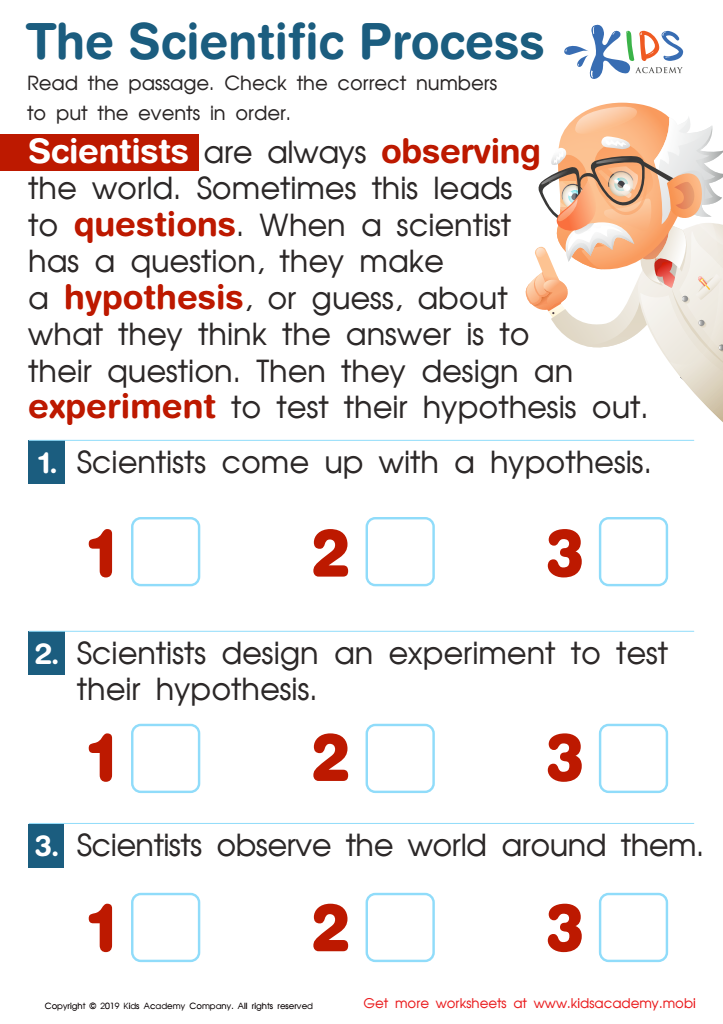Developing hypothesis formulation Worksheets for Kids
1 filtered results
-
From - To


The Scientific Process Worksheet
Question/Answer
How to train the Developing hypothesis formulation skill in Grade 2 students learning about Reading Non-Fiction?
To train Grade 2 students in developing hypothesis formulation skills during non-fiction reading, introduce simple, relatable texts. Begin by asking predictive questions about the text's content based on the title or pictures. Guide students to formulate their own "what if" or "I think" statements about the text before reading, encouraging them to use clues and prior knowledge.
What does the Developing hypothesis formulation skill mean when it comes to Grade 2 Reading Non-Fiction learning?
Developing hypothesis formulation skill in the context of Grade 2 Reading Non-Fiction learning involves teaching students to make educated guesses or predictions about the content or outcomes of a non-fiction text before reading it. It encourages critical thinking, comprehension, and engagement by connecting prior knowledge to new information they are about to explore.
What are some effective activities to train students’ Developing hypothesis formulation skill when teaching them about Reading Non-Fiction?
Effective activities include: 1. **Question Formulation Technique (QFT):** Students generate questions about a text, then refine them into hypotheses. 2. **Think-Pair-Share:** Encourages collaborative hypothesis building. 3. **Evidence-Reasoning Practice:** Students use text excerpts to support or refute a hypothesis. 4. **Prediction Logs:** Before reading, students predict outcomes or themes, revisiting their hypotheses post-reading. 5.
 Assign to the classroom
Assign to the classroom

.jpg)









